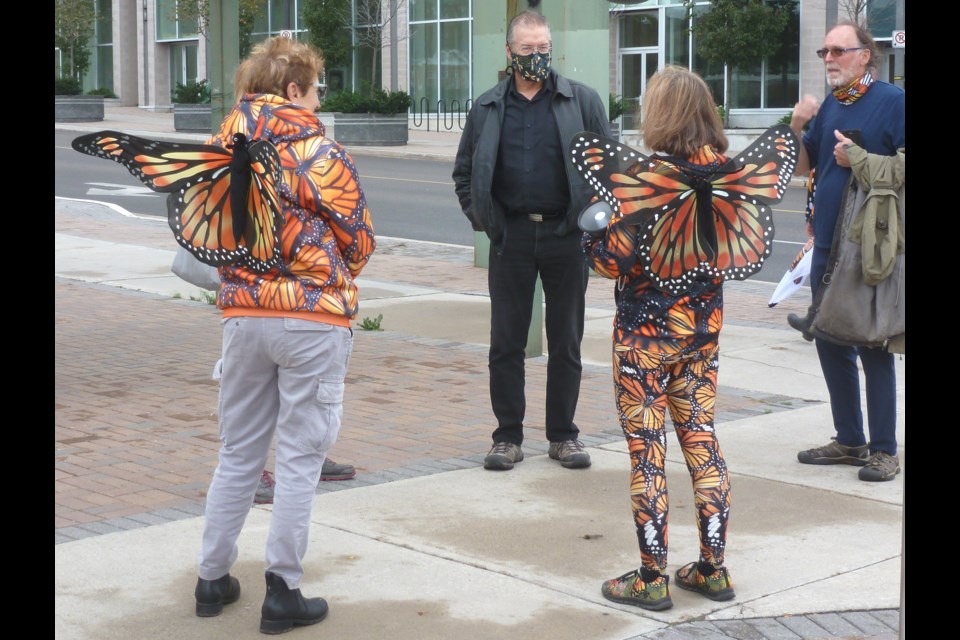The Monarch Ultra Relay Run has at last run out of road.
After beginning Sept. 19 in Peterborough, the relay run wrapped up in Barrie this evening after 21 days of running adventures to raise awareness and funds to support monarch butterflies.
“They do start in our region, before they migrate to Mexico,” Carlotta James, the project’s director and co-founder, said on Saturday. “If we can support them in our own region, in southern Ontario, then they’ll have a better chance of survival before they make their long journey.”
Each fall, millions of monarch butterflies migrate from northeastern United States and Canada, travelling 3,000 miles to their overwintering grounds in central Mexico. Their long-distance journey takes about two months to complete. Similar to ultra runners, monarchs can travel 80 to 160 kilometres a day. It is one of the longest insect migrations on Earth and coincides with the Monarch Ultra Relay Run.
The monarch butterfly’s populations are in steep decline due to habitat loss, pesticides and climate change. Communities can help restore declining butterfly and bee populations by planting flower patches in urban gardens and green spaces.
James says education is the key.
“We go through hundreds of villages and towns and municipalities in this three-week journey, so every person that we’ve spoken to we talk about monarchs and other pollinators, and how people can get involved through activism, through supporting wildlife, through planting pollinator gardens,” she said.
From Peterborough the runners headed southwest to Toronto, Burlington, Hamilton, St. Catharines and Niagara Falls, before looping back around toward London, Cambridge and Kitchener, then ending in Barrie.
Each morning, two ultra runners began a 50-kilometre leg at 8 a.m. and finished at approximately 2 p.m., depending on their pace. Another two runners picked up exactly where the first two left off and ran a 30-km leg.
The relay run took place along the scenic Trans-Canada Trail and Waterfront Trail.
This year’s run raised money for Camp Kawartha, a non-profit organization offering nature education programming for youth. Almost $5,000 has been raised for Camp Kawartha through the Monarch Ultra’s fundraising campaign, with a goal of $10,000.
“The camp provides nature programming for youth,” James said. “Your education is such an important step for Earth stewardship and protecting the Earth. We need to educate our youth to learn more, to get involved in conservation.
“We wouldn’t be in this place if everyone were involved in conservation. The world is the way it is because it’s our fault, you know. From wildlife depletion to pollinator extinction to climate change to any number of things this global world is facing with regards to the environment.
“So youth education and nature programming is very important,” she added.
James says monarch butterflies face dangers on many fronts.
“They’re all human-caused reasons,” she said. “Pesticide use…all those soy beans and corn farms are all sprayed with pesticides. These are poisons that are killing pollinators, as well as the Earth, as well as polluting the waters and air and wild that we all share.”
James says disease, climate change and habitat loss are other dangers monarch butterflies face.
“We keep building bigger homes and developing larger areas and taking away wild spaces for wildlife to grow,” she said.
For more on the Monarch Ultra Relay Run, visit themonarchultra.com/relay-run.



